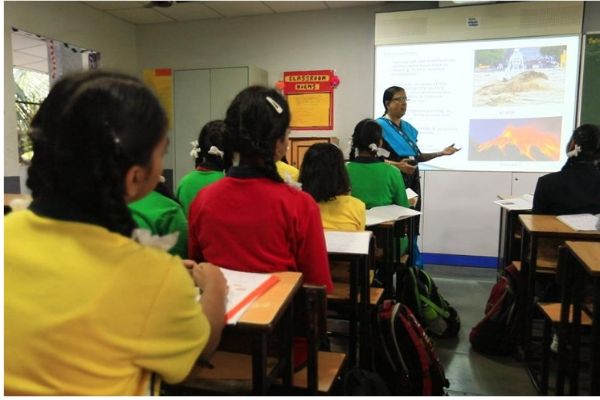The world is rapidly changing. With the oncoming of new technologies and the pace of change means that skills will have a shorter half-life. There is no longer a “job for life”.
This shift requires, education adapt to reflect the changing skills needed in the future. This means, what we teach must change. It is also important to change how we teach to reflect the rapid digitization in all industries, including education.
Let’s look at these two main themes more closely to see how teaching and learning will change over the coming years.
Reevaluating what we teach
Education at all levels is required to change to help children thrive in today’s changing world. Many jobs that school children today will be working in aren’t available yet. LinkedIn projects 150 million new technological jobs over the next five years, and nearly all the roles listed in LinkedIn’s “Jobs On the Rise” report 2022 can be performed remotely.
What skills are essential to success? The World Economic Forum identified key characteristics that will ensure high-quality learning in the future in its Schools of the Future Paper. These skills include:
- Innovative and creative skills, including problem-solving and analytical thinking.
- Global citizenship skills (including awareness and understanding of the wider world and sustainability).
- Technology skills, including data science and programming, should be included as an option.
- Interpersonal skills include empathy, cooperation, and social awareness.
It was great to see soft skills like creativity and interpersonal communication on the list. However, as machines automate more tasks in our workplace, we will find that our inherent human social and emotional skills will become increasingly valuable. With this in mind, here are a few skills that should also be on the list:
- Ethics – The title of AI ethicist is rising, as more companies seek to use AI ethically.
- Diversity (cultural diversity, diversity of thinking) – Did you know that the number of people being hired for the workplace diversity specialist job will rise by 64 per cent in 2020? This is likely to be an important career path in the future.
Rethinking the way we teach
Formal education was born after the first industrial revolution. So it is not surprising that our approach to education hasn’t changed much. Students are still expected to learn the material in lecture halls and classrooms all over the globe, and they often sit directly in front of their teachers.
This is not to be critical of lecturers and teachers. How education is delivered must change to help students develop the skills they need to succeed in the 21st Century.
Particularly, tomorrow’s teachers will be facilitators, not content providers. Here are some of the key enablers for this transformation:
- Increased use of digital content and online learning — a trend greatly accelerated by the COVID-19 pandemic.
- More personalized, self-paced and self-directed learning – learning is flexible and adapted to each student’s needs.
- More collaborative, problem-based, and project-based learning is better suited to the 21st-century workplace.
- Less complicated learning because, according to a study from Microsoft, humans have an attention span of around eight seconds. This is less than a goldfish! Future education will be presented in bite-sized, snackable format.
- Immersive learning – You can make learning more immersive by using virtual and augmented reality technologies to bring subjects to life and immerse students.
The Changing Landscape of Education
South Tapiola high school, also known as ETIS, will show you how these shifts are in practice. This school is consistently ranked among the top schools in Finland. ETIS offers a curriculum that helps students to develop skills such as collaboration, entrepreneurship, and social awareness through real-world applications.
The school offers a Young Entrepreneurship Program where students can work together to create and run their businesses and compete against other young entrepreneurs in national competitions. The school offers a European Parliament for Young People Program. This program provides practical experiences in civic duty. Students can participate in national and regional sessions with students of different backgrounds to discuss current issues facing the European Union. To integrate technology into the school’s curriculum, the school partners with tech companies like Microsoft and Dell.
If you are wondering if “traditional” subjects suffer at the cost of 21st-century skills, then rest assured that ETIS is not a weakling when it comes to core curriculum subjects. ETIS students surpass national averages in math’s and chemistry by more than twice!
It isn’t easy to revaluate what and how we teach. It’s vital if we want to ensure that our education systems meet 21st-century students’ needs and prepare them for success in a rapidly changing world.

